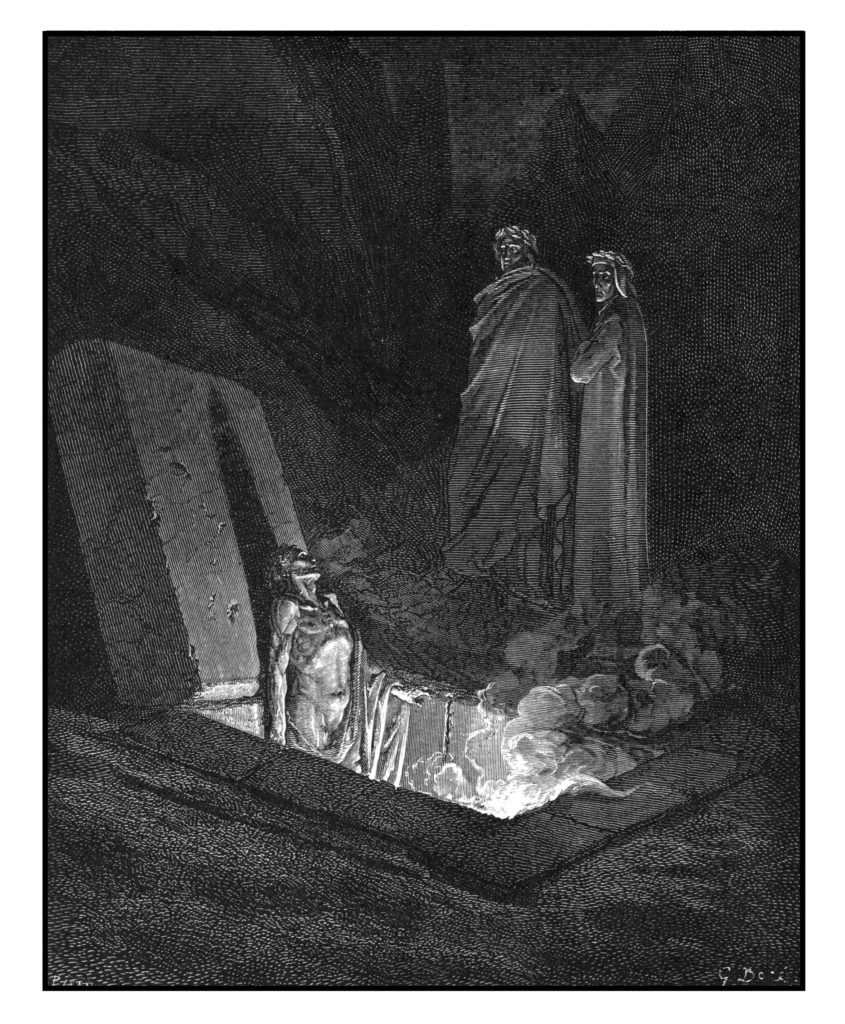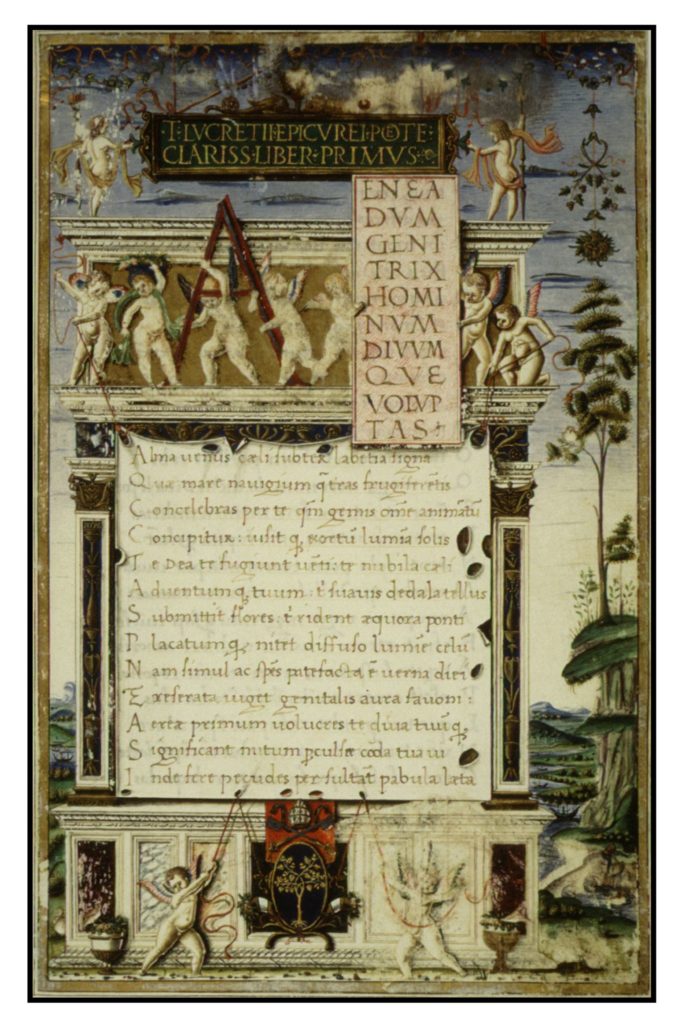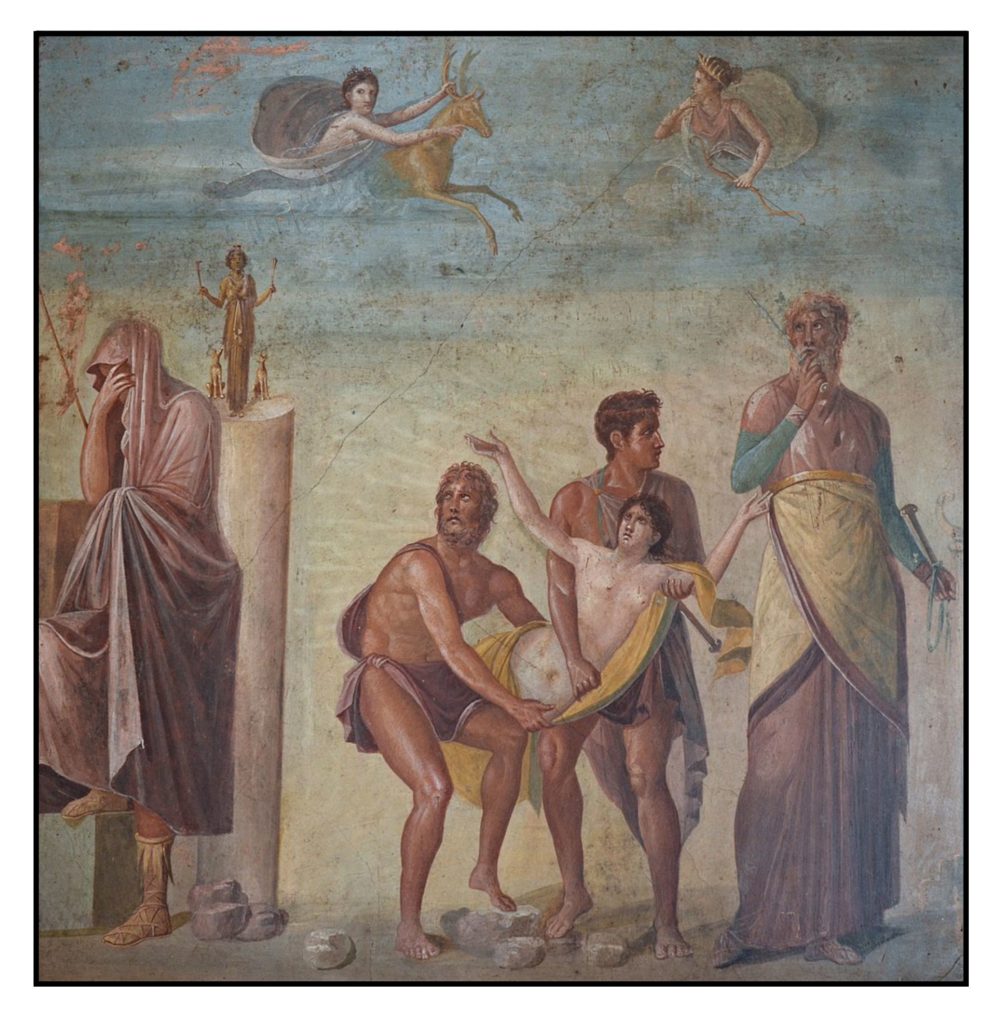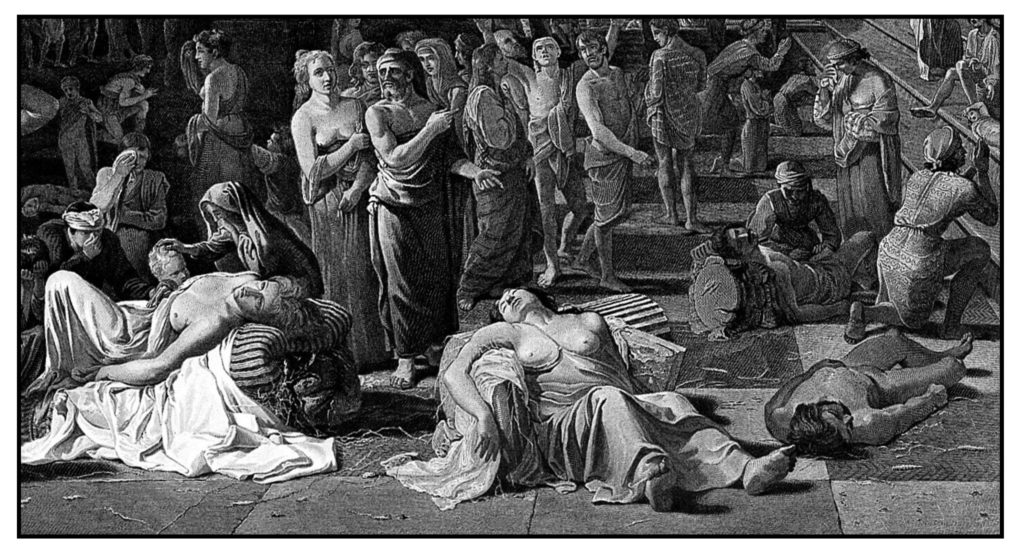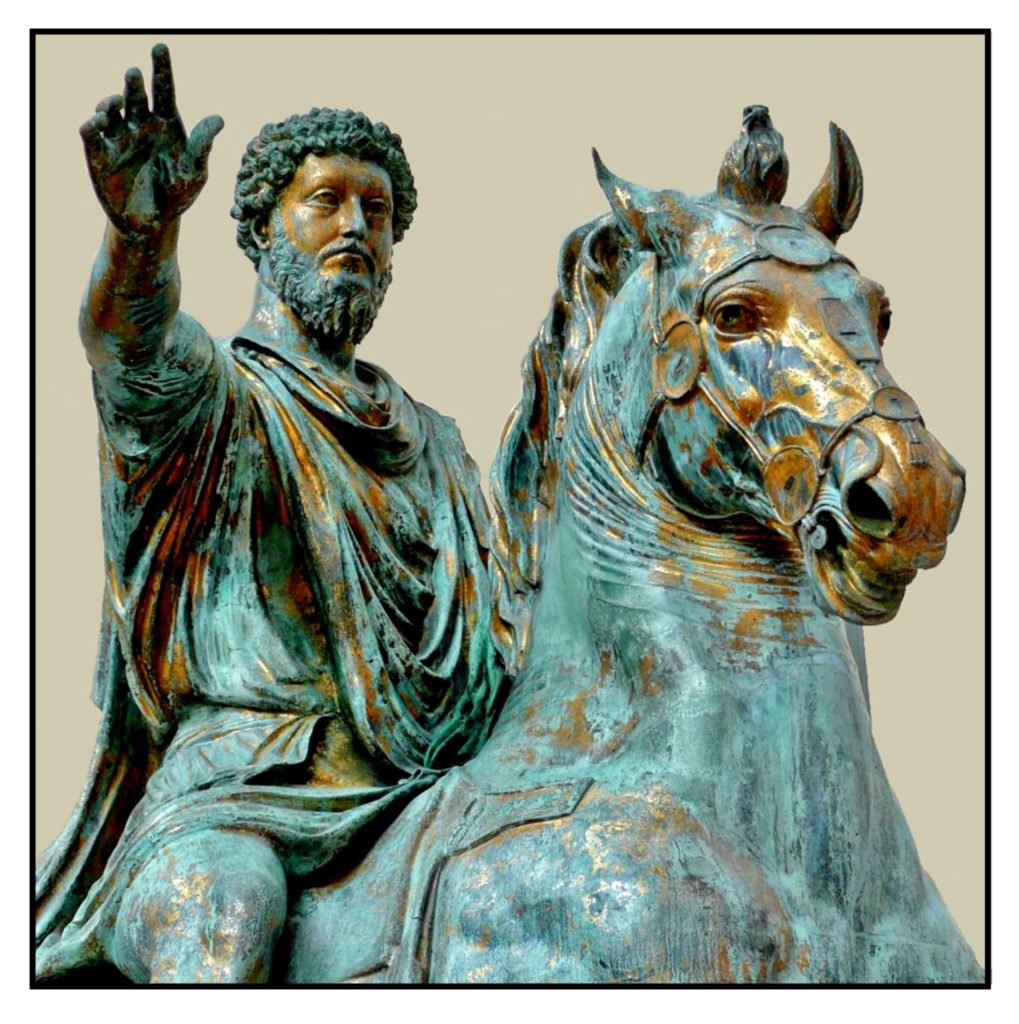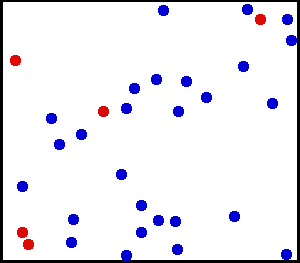“Death is Nothing to Us”
Death is inevitable. What it entails is largely unknown. Some believe that it permanently ends an individual’s existence; others that it simply provides a transition to another form of life. Most people fear it, but some consider it with equanimity. Among the latter are the followers of Epicurus, who claimed
Death is nothing to us. For what has been dissolved has no sense-experience, and what has no sense-experience is nothing to us.
(Epicurus, reported by Diogenes Laertius, translated by Inwood and Gerson, 1997, p 32; another translation is by Yonge, 1983, p. 474).
Epicurus proposed
that human beings are made of complex compounds of atoms. At death these
compounds dissolve, releasing the atoms to form other things. The body decays
and the soul evaporates. Once we are dead, we are no more. We cannot feel what
it is like to be dead. And the dead certainly cannot experience pain. Death should
therefore not be feared.
Epicureanism was
popular during the Roman period. A common Latin epitaph summarized the life of
the Epicurean as a brief interlude between the nothingness preceding birth and
the nothingness following death:
Non fui, fui, non sum, non curo
(I was not; I was; I am not; I do not care).
As Christianity became the official religion of the Roman Empire, Epicureanism faded into obscurity. Dante placed the Epicureans in the Sixth Circle of his Inferno (1320, Canto X). Those who did not believe in the afterlife were forced to spend eternity in graves that were completely closed just as in life their tenants’ obstinacy kept them from the truth. The graves were filled with fired graves just as in life the Epicureans were consumed by their heresy.
As the Western world
moved away from the dogmatism of the Middle Ages, the idea that man was not immortal
was once again considered. Those who now reject any belief in an afterlife sometimes
adopt the bravado of the Epicurean epitaph. But more often than not they care
deeply about death as the defining event in a life. It is not nothing.
Atoms and the Void
The philosophy of
Epicurus derives from the atomism of Democritus (460-370 BCE). Democritus was
born and lived in Abdera, a city in Northern Greece, at about the same time as
Socrates was active in Athens. Democritus maintained that everything was made
of tiny indestructible atoms (Berryman, 2016). He claimed to have learned this
from Leucippus, about whom little is known, and who may be more mythical than
real.
Democritus was called the “laughing philosopher” to distinguish him from Heraclitus (535-475 BCE), the “crying philosopher,” who believed that nothing was indestructible and that everything is forever changing. The cheerful and the tearful.

Of the many
writings of Democritus, we now have only fragments, the most famous of which
is
By convention sweet is sweet, bitter is bitter, hot is hot, cold is cold, color is color; but in truth there are only atoms and the void (translation by Will Durant, 1939, p 393).
The concepts of
the atom and the void were derived from a combination of observation and logic.
Everyone perceives that the world contains objects and that these objects move:
matter and motion. Objects can be broken down into smaller pieces, and these
pieces can themselves be broken down into even tinier particles. But this
breaking down can only proceed so far, or all objects would by now have been
broken down to nothing. There must therefore be some indivisible particle
beyond which matter cannot be further broken. These atoms (from the Greek atomos,
uncuttable) are so tiny that they are cannot be seen by the eye: invisible and indivisible.
The void is necessary to explain how things move. How could something change
its location unless there were empty space for it to move into?
Atoms are infinite
in number but of a finite number of types. Moving atoms collide with one
another and join to form compounds. These compounds interact with each other to
create all that exists in the world. Combining atoms is like forming words with
the letters of the alphabet. From a few letters come a myriad words.
Though atoms are
eternal, the compounds that they form are transient. Rock erodes to sand, which
under pressure becomes stone again. Water evaporates and then condenses. Living
things develop, become mature and then die. At death, the components of the
body break apart, releasing its atoms for making other compounds.
Imperious Caesar, dead and turn’d to clay,
Might stop a hole to keep the wind away (Hamlet, V:1)
The soul is
composed of atoms just like everything else. The atoms of the soul are extremely
fine, perhaps similar to the atoms of fire. They permeate the body, giving it a
conscious spirit. When the body dies, the atoms of the soul dissolve back into
the void like all the other atoms of the body. The soul does not persist beyond
death. There is no afterlife. We are transient like everything else, mortal
like all other living things.
Democritus’ absolute materialism differed from the philosophy of Plato, who proposed the primacy of ideas. Indeed, Plato was so upset with his rival’s teachings that he reportedly urged that all the books of Democritus should be burned (Diogenes Laertius, p 393). So much for freedom of thought in a republic governed by philosophers.
The Garden of Epicurus
The ideas of
Democritus were extended by Epicurus (341-270 BCE), who was born on the Greek
island of Samos off the west coast of Turkey. In 306 BCE Epicurus established a
school of philosophy in Athens that met in a garden below the Acropolis (Jones,
1989; Konstan, 2018; O’Keefe, 2010; Wilson, 2015).
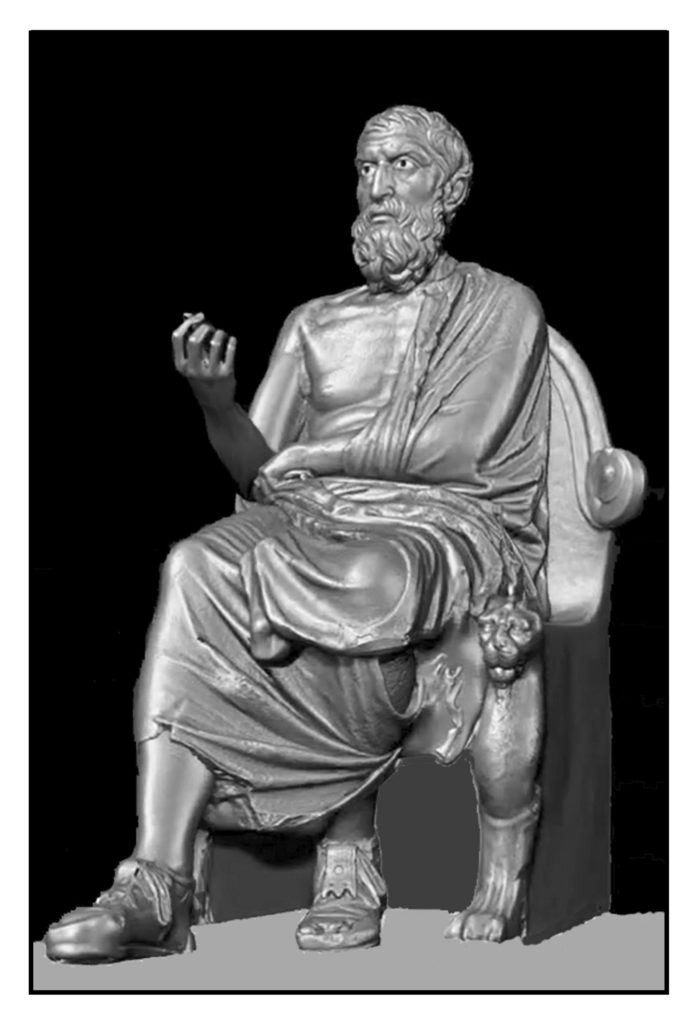
He wrote extensively though none of his books survived the anti-heretical campaigns of the Christian Church. Most of what we know about Epicurus is preserved in the biography written by Diogenes Laertius (3rd Century CE), which includes some of the letters written by the philosopher to his colleagues, and a listing of his Principle Doctrines (Kyriai Doxai). The philosophy of Epicurus was popular in the Roman Empire, and several statues of Epicurus have survived in Roman copies (see right).
Among the lost books
of Epicurus was the Kanon (Rule, Criterion) which discussed how true knowledge
could be obtained. Epicurus proposed that sensation is the most dependable
criterion of truth – the world is what we perceive. Ideas derive from rather
than precede the analysis of sensory information. This seems to have differed
from the ideas of Democritus, who believed that our perceptions were as much
convention as reality.
In the lost Peri
Physis (On Nature) Epicurus presented and extended the atomism of
Democritus. He acknowledged that there are only atoms and the void. The body
and the soul are made of atoms that fall apart when the corporeal body dies and
the conscious soul ceases. We do not live forever.
Epicurus appears to have deviated from the fixed determinism of Democritus byproposing the idea of the clinamen (swerve). Atoms falling through the void would never collide to form compounds unless some atoms at some time swerved from their predetermined path. Democritus also suggested that this unpredictable random movement was the basis of our free will, when we act according to what is desired of the future rather than what has been ordained by the past. In recent years similar ideas based on the uncertain behavior of atoms in the brain have been used to explain free will. Unfortunately, these ideas have little explanatory value. My actions are no more free when determined by random events in the present than when determined by the fixed events of the past.
Free will was
important to Epicurus because he wished us to choose the good life. This depended
on maximizing our happiness. Although maligned by Christian polemicists as a decadent
libertine, Epicurus actually practiced an ascetic hedonism. He valued most the
simple sensory pleasures of his garden and the friendship of his colleagues. He
eschewed any participation in politics as causing too much anxiety. His goal
was ataraxia (tranquility, peace of mind, from a- not and tarasso,
disturb).
Although he was
described as an atheist, Epicurus thought that the gods were real because our
ideas of them were just too clear to be ignored. However, he argued that the
gods were not in any way concerned with human affairs. Like true Epicurean, the
gods enjoy themselves and refuse to be bothered by human politics.
Epicurus proposed
that we should not be frightened of death. Since our consciousness ceases when
we die, death is not painful. Since the gods are not concerned with human
beings, they have not provided an afterlife of punishment for all that we have
done wrong. If we attain a life of ataraxia, it matters not how long we
live (Lesses, 2002; Mitsis, 2002). Death is the natural and inevitable end to
life. The following is from the Letter to Monoeceus:
Get used to
believing that death is nothing to us. For all good and bad consists in
sense-experience, and death is the privation of sense-experience. Hence, a
correct knowledge of the fact that death is nothing to us makes the mortality
of life a matter for contentment, not by adding a limitless time to life but by
removing the longing for immortality. For there is nothing fearful in life for
one who has grasped that there is nothing fearful in the absence of life. Thus,
he is a fool who says that he fears death not because it will be painful when
present but because it is painful when it is still to come. For that which
while present causes no distress causes unnecessary pain when merely
anticipated. So death, the most frightening of bad things, is nothing to us;
since when we exist, death is not yet present, and when death is present, then
we do not exist. (Inwood & Gerson, 1997, p 29)
Epicurus practiced
what he preached. He died from an attack of kidney stones. Despite severe and
prolonged pain, he maintained his ataraxia. His cheerfulness of mind and
his memory of philosophy counterbalanced his afflictions.
De Rerum Natura
In about 50 BCE
Titus Lucretius Carus published a long Latin poem about the Nature of Things.
The poem probably derives from the Peri Physis of Epicurus. Little is
known about the poet. In his Chronicon (circa 380 CE), written some 400
years later, Saint Jerome included an entry for the year 94 BCE:
Titus Lucretius,
poet, is born. After a love-philtre had turned him mad, and he had written, in
the intervals of his insanity, several books which Cicero revised, he killed
himself by his own hand in the forty-fourth year of his age. (translation by
Santayana, 1910, p 19)
Saint Jerome was a
devout Christian, completely opposed to the beliefs of Epicurus, who claimed
that the gods had nothing to do with human life, and who denied the immortality
of the soul. Most critics feel that Jerome was simply trying to belittle the
poet and to cast his work as nonsense: be not seduced by Epicureanism, since madness
and suicide follow from such heresies (e.g., Sedley, 2018, and Smith, 1992 in
his introduction to the Loeb edition of De Rerum Natura). However, the
biography may contain some threads of truth:
The love-philtre in this report sounds apocryphal; and the story of the madness and suicide attributes too edifying an end to an atheist and Epicurean not to be suspected. If anything lends colour to the story it is a certain consonance which we may feel between its tragic incidents and the genius of the poet as revealed in his work, where we find a strange scorn of love, a strange vehemence, and a high melancholy. It is by no means incredible that the author of such a poem should have been at some time the slave of a pathological passion, that his vehemence and inspiration should have passed into mania, and that he should have taken his own life. (Santayana, 1910, pp 19-20).
De Rerum
Natura is like no other
poem: a scientific treatise expressed in verse. The poetry is characterized by
brilliant language and intense imagery. Most impressive is the ongoing energy
of the argument as Lucretius moves from atoms to death, from the soul to the
cosmos, from the weather to the plague.
The poem begins
with a beautiful invocation of Venus as the mother of Aeneas, founder of Rome,
as the patron of all the creative forces in the world, and as the
personification of Epicurean pleasure:
Life-stirring Venus, Mother of Aeneas and of Rome,
Pleasure of men and gods, you make all things beneath the dome
Of sliding constellations teem, you throng the fruited earth
And the ship-freighted sea — for every species comes to birth
Conceived through you, and rises forth and gazes on the light.
The winds flee from you, Goddess, your arrival puts to flight
The clouds of heaven. For you, the crafty earth contrives sweet flowers,
For you, the oceans laugh, the skies grow peaceful after showers,
Awash with light. (I: 1-10 Stalling translation)
On the right is the first page of a 1483 manuscript copy of the poem made for Pope Sixtus IV by Girolamo di Matteo de Tauris. The Latin text begins
Aeneadum genetrix, hominum divomque voluptas,
Alma Venus, caeli subter labentia signa
Quae mare navigerum, quae terras frugiferentis
The beginning of
the poem immediately questions the Epicurean view that the gods are not
involved with the human world. Why should Lucretius invoke Venus as a partner
in his poetry? The gods are a problem for Epicureanism: if they are real, they
must be made of atoms and, if so, they cannot be immortal; yet, if they are
mortal, they are not gods. Lucretius probably considered the gods more as
metaphors than as real beings. Later in the poem (II: 646-660) he remarks that it
is customary to call the sea Neptune, the corn Ceres and the wine Bacchus
without actually meaning that these things are divine.
Lucretius quickly indicates that superstitious belief in the gods can lead to terrible wrongs by recounting the story of Iphigenia, daughter of Agamemnon, who was sacrificed at Aulis to propitiate the anger of the goddess Artemis, and obtain fair winds to send the Greek ships to Troy. The illustration at the left shows a fresco in the House of Tragic Poet in Pompeii from about the same time as Lucretius. Iphigenia is carried by Achilles and Ulysses to be sacrificed by Calchas the priest, while her father on the left refuses to observe her death. Above, the goddess Artemis arranges for a stag to be substituted for Iphigenia, who will be spirited away. However, this will be done without any of the Greeks realizing that Iphigenia was not actually sacrificed. Human sacrifice is also part of the Hebrew Bible, which recounts the attempted sacrifice of Isaac in Genesis 22 and the actual sacrifice of Jephthah’s daughter in Judges 11. As Lucretius clearly states, Iphigenia was
An innocent girl betrayed to a sort of incest
To be struck down by the piety of her father
Who hoped in that way to get a good start for his fleet.
That is the sort of horror religion produces.
(I: 98-101, Sisson translation).
De Rerum
Natura recounts the
principles of atomism espoused by Epicurus. Lucretius describes the clinamen
or swerve, and notes its importance for free will. We are not completely
determined by our past:
Again, if all motion is always one long chain, and new motion arises out of the old in order in-variable, and if the first-beginnings do not make by swerving a beginning of motion such as to break the decrees of fate, that cause may not follow cause from infinity, whence comes this free will in living creatures all over the earth, whence I say is this will wrested from the fates by which we proceed whither pleasure leads each, swerving also our motions not at fixed times and fixed places, but just where our mind has taken us? (II: 252-260, Rouse translation).
Lucretius considers death in many ways. The following passage provides the principal Epicurean argument:
So death is nothing, and matters nothing to us
Once it is clear that the mind is mortal stuff.
…
So when we are dead and when our body and soul
Which together make us one, have come apart,
Nothing can happen to us, we shall not be there,
Nothing whatever will have the power to move us,
Not even if earth and sea got mixed into one.
(III: 830-1, 838-842, Sisson translation)
Lucretius also
adds the analogy of the mirror to the Epicurean comparison of the time before
birth to the time after death. If we are not concerned with what occurred
before we are born, why should we be afraid of its mirror-image: the time after
we have died and once again do not exist:
Now look back: all the time that ever existed
Before we were born, was nothing at all to us.
It is a mirror which nature holds up for us
To show us what it will be like after our death.
Is it very horrible? Is there anything sad in it?
Is it any different from sleep? It is more untroubled.
(III: 972-977, Sisson translation)
The poem goes on
to consider many natural phenomena. Some of the explanations that Lucretius
offers are good, and some are similar to those proposed in modern science.
However, most of the explanations are wrong. Science and poetry are not well
suited: poetry attempts to say things that will last forever, whereas science is
always changing.
At the end of the
VI Book of De Rerum Natura Lucretius vividly describes the great Plague
of Athens that began in 430 BCE during the Peloponnesian War. There is great
debate about the nature of the plague, which was perhaps caused by an
Ebola-like hemorrhagic fever.
The symptom first to strike was fiery fever in the head,
And both eyes, burning hectic bright, were all shot through with red.
The throat as well would sweat with blood, all black within. And stung
With sores, the pathway of the voice would clog and choke. The tongue,
Interpreter of the mind, oozed pus, and, made limp with the smart,
Was too heavy to move, and rough. Thence the disease would start,
Passing the gullet, to fill the chest, and flood the heavy heart
Of the afflicted, and then, indeed, all of the gates of Life
Began to give. From the open mouth, there would exhale a rife
Stink, like the stench of rank unburied corpses left to rot.
And then all of the powers of the mind and body, brought
To the very brink of doom, began to flicker. Mental strain
Ever danced attendance on intolerable pain;
Pleas mingled with moans. Ceaseless retching, lasting day
And night, was ever causing seizure and cramp, and wasting away
The strength of men already racked with suffering and worn out.
(VI: 1145-1161, Stallings translation)
Death was everywhere. Below is a detail of an engraving (from the Wellcome Library) from a 1654 painting by Michael Sweerts, once thought to represent the plague of Athens:
The prevalence of
death tore at the moral fabric of the city:
The present grief was overwhelming. No one any more
Observed the rites of burial they had observed before,
For the whole populace was thrown in disarray and cowed.
Each mourner buried his dead just as the time and means allowed.
Squalid Poverty and Sudden Disaster would conspire
To drive men on to desperate deeds — so they’d place on a pyre
Constructed by another their own loved-ones, and set fire
To it with wails and lamentation. And often they would shed
Much blood in the struggle rather than desert their dead.
(VI: 1278-1286, Stallings translation)
De Rerum
Natura ends here. Most
critics feel that Lucretius died before he could finish his poem, and that he
probably intended to explain how philosophy could help one face the horrors of
such a plague with equanimity. But he did not. And one wonders if he could not.
Stoicism
At the time of
Epicurus, Athens was home to several other schools of philosophy. The most
important of these were the Skeptics who refused to believe in anything, and
the Stoics who differed from the Epicureans mainly in their promotions of
virtue rather than pleasure as the goal of human life (Baltzly, 2019; Long, 1986).
The Stoics proposed that the universe proceeded according to its own Logos, and
that human benefit was not necessarily part of this determined path. One had to
accept one’s fate and do the best that one could. The Stoical idea of the Logos
goes back to Heraclitus. Indeed, Stoics and Epicureans can trace their
emotional origins to tearful Heraclitus and cheerful Democritus.
The Stoics also differed from the Epicureans in their approach to death. While the Epicureans tried to ignore death, the Stoics paid it constant attention. Death brings one’s life to an end, and therefore settles the sum of one’s virtues and achievements. Life should therefore be lived as if death were imminent. The Roman Emperor Marcus Aurelius, the 175 CE statue of whom is illustrated on the left, voiced these Stoical precepts in his Meditations:
Every moment think steadily as a Roman and a man, to do what thou hast in hand with perfect and simple dignity, and feeling of affection, and freedom, and justice; and to give thy self relief from all other thoughts. And thou wilt give thyself relief, if thou doest every act of thy life as if it were the last, laying aside all carelessness and passionate aversion from the commands of reason, and all hypocrisy, and self-love, and discontent with the portion which has been given to thee.
Do not act as if thou wert going to live ten thousand years Death hangs over thee. While thou livest, while it is in thy power, be good
(Marcus Aurelius, 180 CE, II: 5 and III: 17, translation by Long)
Stoicism became
more popular with the Romans than Epicureanism. And Stoicism fitted more easily
to the doctrines of Christianity, which accepted and transformed the Stoic idea
of Logos, making Christ its personification.
Epicurus and Modernity
The works of Democritus
and Epicurus did not survive beyond Roman times. However, a manuscript of De
Rerum Natura by Lucretius was diligently copied and re-copied by Christian monks,
and finally discovered in a German monastery in 1417 by Poggio Bracciolini (Greenblatt, 2011). The
first printed publication of De Rerum Natura was in 1473.
The rediscovered book
brought the atomism of Democritus and Epicurus to the attention of the
philosophers and scientists of Europe. Pierre Gassendi (1592-1665) in France
and Robert Boyle (1627-1691) in England were attracted to the explanatory power
of atoms and developed a “corpuscular philosophy” (Wilson, 2008). They tried
but failed to reconcile this atomism with Christian beliefs in the immortal
soul and a beneficent God.
As science progressed, corpuscular philosophy developed into modern chemistry. Atoms of different types combine to form molecules of various chemical compounds. The pressure of a gas depends on the force exerted by the continual movement of its molecules. This is illustrated on the right, in which five of the molecules are colored red to make their motion easier to follow. The molecules move like the motes of dust in the sunlight that were described in De Rerum Natura (Book II:62-79). Science now knows that atoms are not indivisible, but modern science owes much to Lucretius.
As the Enlightenment
progressed, some thinkers decided to reject God and immortality and to accept
Epicurus’ views of death. Of these perhaps the most famous is David Hume
(1711-1776) who, when dying of cancer, was interviewed by James Boswell
(1740-1795). Boswell was disconcerted by Hume’s refusal to believe in the
afterlife, and by his cheerfulness in the face of death (Miller, 1995):
I asked him if the thought of annihilation never gave him any uneasiness. He said not the least; no more than the thought that he had not been, as Lucretius observes. (Boswell, 1776).
Fear of Death
Despite the
cheerfulness with which Epicurus and Hume faced death, Epicurean logic fails to
convince most human beings not to fear death. Since death before maturity
prevents us from reproducing, evolution must clearly have given preference to
those whose fear of death made them avoid potentially fatal situations.
Epicurus promoted
pleasure as the goal of life, but had difficulty handling its relation to time.
Common sense definitely presumes that pleasure is greater when it lasts longer.
A death that shortens a potentially pleasurable life should therefore be
feared. Epicurus proposed that ataraxia is the same regardless of the
duration, but his argument is unconvincing:
Epicurus holds that pleasure is the supreme good, and yet claims that there is no greater pleasure to be had in an infinite period than in a brief and limited one. Now one who regards good as entirely a matter of virtue is entitled to say that one has a completely happy life when completely virtuous. Here it is denied that time adds anything to the supreme good. But if one believes that the happy life is constituted by pleasure, then one cannot consistently maintain that pleasure does not increase with duration, or else the same will apply to pain. Or are we to say that the longer one is in pain the more miserable one is, but deny that duration has any bearing on the desirability of pleasure. (Cicero, 45 BCE, II: 88)
Nagel (1990) makes
a similar point:
Observed from without, human beings obviously have a natural lifespan and cannot live much longer than a hundred years. A man’s sense of his own experience, on the other hand, does not embody this idea of a natural limit. His existence defines for him an essentially open-ended possible future, containing the usual mixture of goods and evils that he has found so tolerable in the past. Having been gratuitously introduced to the world by a collection of natural, historical, and social accidents, he finds himself the subject of a life, with an indeterminate and not essentially limited future. Viewed in this way, death, no matter how inevitable, is an abrupt cancellation of indefinitely extensive possible goods. Normality seems to have nothing to do with it, for the fact that we will all inevitably die in a few score years cannot by itself imply that it would not be good to live longer.
Most people feel
that death comes before their lives have been properly completed. Some things
have not yet been experienced, others have not yet been atoned for; their
achievement is not enough, their legacy not sufficient. As Cicero (44 BCE)
remarked “No one is so old that he does not expect to live a year longer.”
The Makropulos Case
How much longer should
one then wish to live? Forever may be as frightening as tomorrow. This idea was
considered in an important paper by Bernard Williams (1973) that took as its
point of origin a play by Karel Capek that premiered in Prague in 1922 – The
Makropulos Case. Leos Janacek’s operatic version of the play was produced
in Brno in 1925.
In the play Emilia
Marty, a beautiful and successful opera singer, turns out to be Elina
Makropulos, a young Greek woman who was given an elixir of longevity by her
physician-father in 1601. Having lived over 300 years without aging she has
returned to Prague to find the elixir’s formula so that she can further prolong
her youth. The following photograph from the San Francisco Opera (2016) shows
Nadja Michael in the role of Emilia in the first act of the opera (which takes
place in a law office):

In the end Emilia
decides that she does not want to live longer. She explains to the others:
Oh, life should not last so long!
If you only realized how easy life is for you!
You are so close to everything!
For you, everything makes sense!
For you, everything has value!
– for the trivial chance reason
that you are going to die soon.
… It’s all in vain
whether you sing or keep silent –
no pleasure in being good
no pleasure in being bad.
No pleasure on earth,
No pleasure in heaven.
And one comes to learn
that the soul has died inside one.
(Janacek version)
Williams (1973) agrees
with Emilia. After a while immortality will become tedious. Human desires are
designed for shorter periods. Evolution has made us long to live longer. Yet
the usual span of human life gives us about the right amount of time to
experience what we can, and to accomplish what we should.
Aubade
Another aspect of
death not considered in Epicurean philosophy is that it is the end of the
“person.” Each individual spends a lifetime developing a collection of
experiences and achievements, out of which are derived a set of values and an
accumulated knowledge. Warren (2004, chapter 4) considers these as the personal
“narrative.” At death the story ends. The person vanishes. Some traces will be
preserved in the memories of others but these are but faint copies of the
original.
This is the reason
why Lucretius’ analogy of the mirror does not work. We are not concerned with
the time before we were born because we did not exist then. However, this is
not the mirror image of the time after our death when we again do not exist.
Because in the meantime we have existed. Time only goes one way.
Personal annihilation is perhaps the most frightening part of death. On December 23, 1977, Philip Larkin published a poem about death in the Times Literary Supplement. (The full text is available at this link). In a letter to a friend he called it “a real infusion of Christmas cheer” (Larkin, Burnett, 2012, p 495). Fletcher (2007) provides some discussion of the poem and its relation to one of John Betjeman’s. An aubade is typically the dawn song of a lover as he leaves his mistress. Larkin’s poem is a death song about leaving his life. He is intensely afraid:
The mind blanks at the glare. Not in remorse
—The good not done, the love not given, time
Torn off unused—nor wretchedly because
An only life can take so long to climb
Clear of its wrong beginnings, and may never;
But at the total emptiness for ever,
The sure extinction that we travel to
And shall be lost in always. Not to be here,
Not to be anywhere,
And soon; nothing more terrible, nothing more true.
He laments the
inability of religious faith or philosophical reason to provide any comfort:
Religion used to try,
That vast moth-eaten musical brocade
Created to pretend we never die,
And specious stuff that says No rational being
Can fear a thing it will not feel, not seeing
That this is what we fear—no sight, no sound,
No touch or taste or smell, nothing to think with,
Nothing to love or link with,
The anaesthetic from which none come round.
Larkin provides us with no resolution of this fear. In the final lines of the poem he watches as the dawn breaks and people get ready for work. Phones will ring and letters will be delivered. Communication is perhaps our only comfort. The following is Larkin’s recitation of the poem.
Endings
So we come to the
end of this essay on endings. Though death is not desired, it is inevitable.
Epicurus was right about there being nothing after death, but death itself is
not nothing. It marks the transition of a life from the individual
consciousness to the memory of others. Henry James noted in 1916 when his final
stroke began, “So here it is, the distinguished thing” (Edel, 1968, Callahan, 2005).
References
Baltzly, D. (2019). Stoicism. Stanford Encyclopedia of Philosophy.
Berryman, S. (2016). Democritus. Stanford Encyclopedia of Philosophy.
Boswell, J. (1776, reprinted 1970). An account of my last interview with David Hume. In Weis C. M. and Pottle F. A. (Eds) Boswell in Extremes. 1776-1778. New York: McGraw Hill. (pp 11-15). Also available at PhilosophyTalk website.
Callahan,
D. (2005). Death: ‘The Distinguished Thing,’ Hastings Center Report, 35, S5-S8.
Čapek,
K., (translated and introduced by Majer, P., & Porter, C., 1999). Four
plays. London: Methuen Drama.
Cicero, M. T. (45 BCE, translated by Woolf, R., and edited by Annas, J., 2001). On Moral Ends. Cambridge, UK: Cambridge University Press. Available at Archive.org
Cicero, M. T. (44 BCE, translated by A. P. Peabody, 1884). Cicero de Senectute (on old age). Little Brown, Boston. Available at Archive.org
Diogenes Laertius (3rd Century CE, translated by Yonge, C. D., 1853). The lives and opinions of eminent philosophers. London: Henry G. Bohn. Available at Archive.org
Durant, W. (1939). The story of civilization: Part II: The life of Greece. New York: Simon and Schuster. Available at Archive.org
Edel, L. (1968). The deathbed notes of Henry James. The Atlantic Monthly, (June 1968)
Fletcher, C. (2007). John Betjeman’s ‘Before the Anaesthetic, orA Real Fright’: A Source for Philip
Larkin’s ‘Aubade’. Notes and Queries, 54, 179-181
Greenblatt, S. (2011). The swerve: How the
world became modern. New York: W.W. Norton.
Inwood, B., & Gerson, L. P. (1997). Hellenistic
philosophy: Introductory readings. 2nd Edition. Indianapolis: Hackett.
Jones, H. (1989). The Epicurean tradition.
London: Routledge.
Konstan, D. (2018). Epicurus. Stanford Encyclopedia of Philosophy.
Larkin, P. (edited by A. Burnett, 2012). The
complete poems of Philip Larkin. London: Faber and Faber.
Lesses, G. (2002).
Happiness, completeness, and indifference to death in Epicurean ethical theory.
Apeiron, 35 (4), 57–68.
Long, A. A. (1986). Hellenistic philosophy: Stoics,
Epicureans, Sceptics. 2nd Edition
Berkeley: University of California Press.
Lucretius, C. T. (~50BCE, translated by W. H.
D. Rouse, 1924, with introduction and revisions by M. F. Smith, 1992). De
rerum natura. Cambridge, Mass: Harvard University Press (Loeb Classical
Library). (Latin with English prose translation)
Lucretius, C. T. (translated by C. H. Sisson,
1976). De rerum natura: The poem on nature; a translation. Manchester:
Carcanet New Press. (Blank verse translation)
Lucretius, C. T. (translated by A.E. Stallings, 2007). The nature of things. London: Penguin Classics. (Translation in rhyming couplets)
Marcus Aurelius Antoninus (180 CE, translated by G. Long, 1862). Meditations. New York: F. M. Lupton. Available at Archive.org.
Miller, S. (1995). The death of Hume. Wilson Quarterly, 19 (3). 30-39
Mitsis, P. (2002).
Happiness and death in Epicurean ethics. Apeiron, 35 (4), 41–55.
Nagel. T. (1970). Death. Nous, 4,
73-80. Reprinted in Nagel, T. (1979). Mortal Questions (pp 1-10)
Cambridge UK; Cambridge University Press.
O’Keefe, T. (2010). Epicureanism.
Durham, UK: Acumen.
Santayana, G. (1910). Three philosophical poets: Lucretius, Dante, and Goethe. Cambridge, MA: Harvard University.
Sedley, D. (2018). Lucretius. Stanford Encyclopedia of Philosophy.
Warren, J. (2004). Facing death:
Epicurus and his critics. Oxford: Oxford University Press.
Williams, B. (1973). The
Makropoulos case: Reflections on the tedium of immortality. Reprinted in his Problems
of the Self. (pp 82-100). New York: Cambridge University Press.
Wilson, C. (2015). Epicureanism: a very short introduction. Oxford: Oxford University Press.
Wilson, C. (2008). Epicureanism at the
origins of modernity. Oxford: Oxford University Press.
